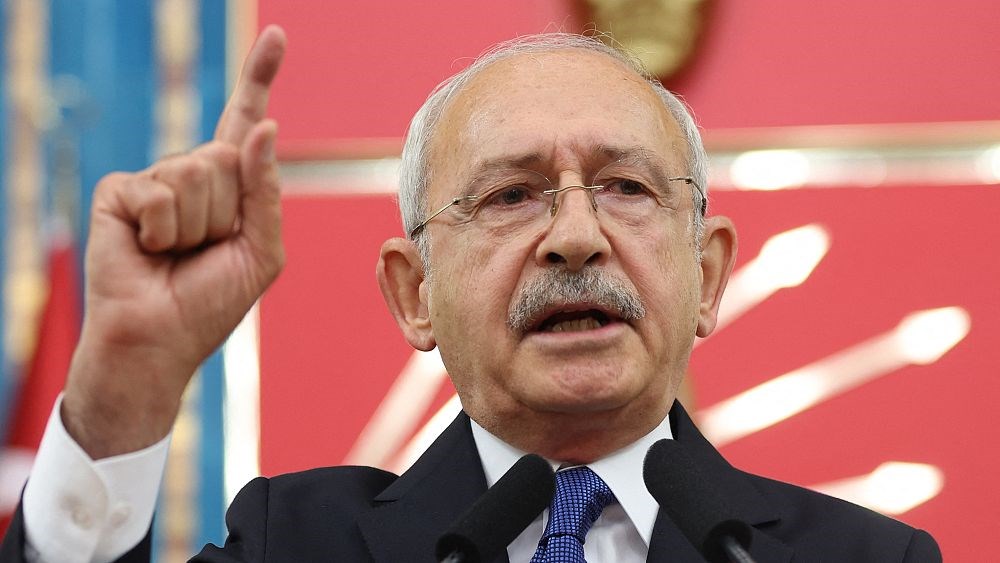Turkey's opposition fails to agree on contender to Erdogan
The Iyi Party does not support the opposition coalition’s top candidate Kemal Kilicdaroglu in the presidential elections and could leave the opposition bloc altogether.
-

Kemal Kilicdaroglu (AFP)
Turkey's right-wing Iyi Party leader Meral Aksener said on Friday that it would not back Kemal Kilicdaroglu, the opposition coalition’s joint candidate, to challenge Turkish President Recep Tayyip Erdogan in the presidential elections set for May 14.
Aksener also indicated that her party could leave the opposition bloc.
Five parties among Turkey’s opposition bloc have on Thursday agreed on the candidacy of Kilicdaroglu, the main opposition leader. However, the "Table of six", which is the second-largest opposition party within the bloc, remained intransigent.
“The Nation Alliance is no longer representing the common will of our nation,” Aksener told journalists in reference to the alliance.
Iyi has been pushing for the nomination of Ankara Mayor Mansur Yavas or Istanbul Mayor Ekrem Imamoglu as possible joint candidates for the Table of Six.
The right-wing party cited polls that did not give Kilicdaroglu as high a chance as those given to the two mayors.
Aksener demanded Yavas and Imamoglu bypass the opposition coalition and announce their candidacy.
"Our nation is calling you to do your duty," she said.
Iyi's step will affect the opposition alliance's yearslong hard work in setting up a united front against Erdogan's government.
The elections are anticipated to be the most polarized this new year, determining the fate of 85 million citizens in the nation of 3 continents: Europe, the Middle East, and Asia.
The country is already dealing with high inflation and a depreciation of the Turkish lira against the US dollar.
The AKP is barely passing 30% of popular support, according to recent polls in Turkey. Despite that, Erdogan is still amping up preparations to enter Syria and dissolve Kurdish militias, which Turkey views as tied to the Kurdistan Workers’ Party (PKK) guerrillas.
He has also threatened to strike its NATO ally Greece over the regional disputes of Cyprus, the “militarization” of Greek islands, and expansion in the Aegean Sea.

 2 Min Read
2 Min Read








